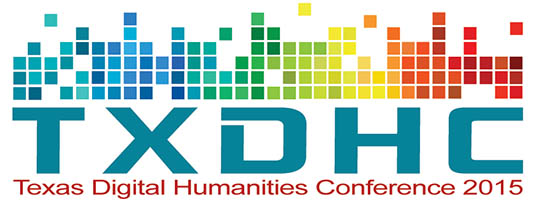Document Type
Presentation
Abstract
This presentation will theorize the implications of digital audiovisual archives for humanities scholarship and pedagogy. The proliferation of digital oral history projects available online means that they comprise an important category of new digital media, but there are few precedents for analyzing their contents and incorporating them into innovative research and teaching. Increasingly, universities and academic libraries support digital initiatives such as the University of Texas at Austin’s Human Rights Documentation Initiative (HRDI), which provides server space for large collections of audiovisual primary source material pertaining to issues of human rights internationally. However, despite the clear potential of the HRDI for compelling multimedia digital scholarship, there remain few models of student or faculty work incorporating the HRDI or comparable audiovisual archives. And while digital publications such as [in]Transition, a collaboration between MediaCommons and Cinema Journal, offer venues for scholarly works that analyze, argue, and present multimedia, multidisciplinary humanist content, pressing theoretical questions accompany such publication opportunities. What are the rhetorical challenges of incorporating audiovisual digital archives into literary analyses? What ethical concerns are raised by integrating ostensibly unmediated narratives (oral histories) with mediated narratives (film and fiction) in digital scholarship? Drawing on case studies from my Spring 2015 undergraduate English class titled “Freedom and Imprisonment in the American Literary Tradition: A Multidisciplinary Approach,” I will examine both the practical and the theoretical challenges posed by incorporating digital oral history collections including the Texas After Violence Project (TAVP), the StoryCorps Slavery By Another Name Oral History Project, and the Rule of Law Oral History Project. In the course we will consider 19th, 20th, and 21st century American literature, broadly construed to include fiction, poetry, film, oral history, and autobiography, alongside scholarly sources ranging across the fields of anthropology, journalism, history, and sociology. As part of their work for the course, students will complete transcription, auditing, and video-editing tasks in collaboration with the Texas After Violence Project and the American Prison Writing Archive (APWA). I will argue that building, analyzing, and enhancing access to digital oral history collections can transform scholarship and pedagogy in the humanities by providing unique community engagement opportunities for the wired undergraduate classroom. As they participate in digital archiving tasks that substantively advance the programming objectives of the TAVP and the APWA, students practice skills that are widely valued across the liberal arts, including identifying and summarizing main ideas, recognizing the contingency of knowledge, and processing and synthesizing multiple divergent perspectives. At the same time, students pioneer new scholarly territory by making strong analytical connections between literary texts and digital archives, thus generating valuable models for innovative digital humanities scholarship.
Disciplines
Arts and Humanities | Digital Humanities
Publication Date
4-11-2015
Language
English
License

This work is licensed under a Creative Commons Attribution-NonCommercial-Share Alike 4.0 International License.
Recommended Citation
Nunes, Charlotte, "Digital Oral History Collections: Implications for Innovation in the Humanities" (2015). Texas Digital Humanities Conference 2015. 7.
https://mavmatrix.uta.edu/digitalhumanities_conf2015/7

